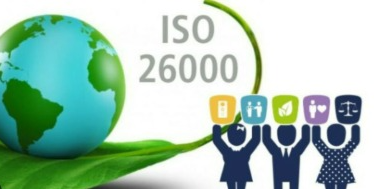ISO 26000 – Guidance on Social Responsibility: Building a Responsible and Sustainable Future
In today’s globalized world, organizations are increasingly expected to operate responsibly—not just focusing on profit, but also on people and the planet. Corporate social responsibility (CSR) has become a vital part of sustainable business success. To support this mission, the International Organization for Standardization (ISO) introduced ISO 26000, a comprehensive international standard that provides guidance on social responsibility for all types of organizations.
What is ISO 26000?
ISO 26000 is an international standard published in 2010 that provides guidelines for social responsibility (SR). Unlike other ISO standards, ISO 26000 is not certifiable, but it serves as a framework to help organizations integrate socially responsible behavior into their values, strategies, and daily operations.
The standard applies to organizations of all sizes and sectors—public or private, industrial or service-based—and encourages them to operate ethically, transparently, and sustainably.
Purpose of ISO 26000
The primary purpose of ISO 26000 is to help organizations:
-
Understand and implement socially responsible practices.
-
Contribute to sustainable development and community well-being.
-
Foster transparency, accountability, and ethical behavior.
-
Improve relationships with stakeholders, employees, and customers.
-
Enhance reputation and long-term sustainability.
By following ISO 26000 guidelines, organizations demonstrate their commitment to doing business responsibly and ethically.
Core Principles of ISO 26000
ISO 26000 defines seven key principles of social responsibility that guide organizations toward sustainable practices:
-
Accountability – Taking responsibility for the organization’s actions and their impacts on society and the environment.
-
Transparency – Openly sharing decisions, policies, and impacts with stakeholders.
-
Ethical Behavior – Acting with integrity, fairness, and honesty.
-
Respect for Stakeholder Interests – Considering the needs and expectations of all affected parties.
-
Respect for the Rule of Law – Complying with all applicable laws and regulations.
-
Respect for International Norms of Behavior – Aligning with universally accepted ethical standards.
-
Respect for Human Rights – Upholding and promoting fundamental human rights in all operations.
Core Subjects of Social Responsibility
ISO 26000 identifies seven core subjects that organizations should focus on to achieve responsible and sustainable operations:
-
Organizational Governance
-
Human Rights
-
Labor Practices
-
The Environment
-
Fair Operating Practices
-
Consumer Issues
-
Community Involvement and Development
These subjects help organizations assess and improve their impact on people and the planet.
Benefits of Implementing ISO 26000
Adopting ISO 26000 provides several strategic and social advantages:
-
Enhanced Reputation: Demonstrates commitment to ethical practices and sustainability.
-
Stakeholder Trust: Builds stronger relationships with customers, employees, investors, and communities.
-
Improved Employee Morale: Encourages a positive and responsible workplace culture.
-
Sustainable Growth: Balances economic success with social and environmental responsibility.
-
Compliance Support: Aligns with global sustainability frameworks such as the UN Sustainable Development Goals (SDGs).
Conclusion
ISO 26000 serves as a powerful tool for organizations striving to make a positive difference in society. It goes beyond compliance—encouraging a shift toward ethical governance, sustainability, and human welfare. By embracing ISO 26000 principles, businesses can strengthen their reputation, foster stakeholder confidence, and contribute meaningfully to global sustainable development.






